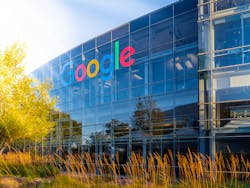Google Strikes Back in AI Battle with Microsoft
Google on Wednesday announced a slew of features powered by Artificial Intelligence (AI) as it ramped up a battle with Microsoft to maintain its dominance of the web search industry.
The two Silicon Valley titans are rushing into the space after the ChatGPT bot caught the imagination of web users around the world with its ability to generate essays, speeches and even exam papers in seconds.
Microsoft has announced a multibillion-dollar partnership with ChatGPT maker OpenAI and unveiled new products on Tuesday, while Google tried to steal the march a day earlier by announcing its "Bard" chatbot.
Google Vice-President Prabhakar Raghavan told an event in Paris that Bard was now being used by "trusted testers" but did not give a timeline for a public release, which is expected within weeks.
Analysts have suggested Google has rushed its announcement under pressure from Microsoft, but Raghavan denied the claim.
"This has been a multiyear journey," he said, adding that no single event had "dramatically changed the course" of Google's plans.
Google executives announced on Wednesday several AI-induced improvements across products including maps, translation and its image recognition tool Lens.
Microsoft has similarly said it will incorporate AI into its Office suite and Teams messaging app.
But its promise to soup up its much-maligned Bing search engine put it on a collision course with Google, which has dominated the field for two decades.
AI chatbots like ChatGPT hold the promise of supplying users with ready-made answers from multiple sources, replacing the familiar list of links and ads that have been Google's bread and butter for two decades.
Media reports said the overnight success of ChatGPT was designated a "code red" threat at Google with founders Sergey Brin and Larry Page -- who left several years ago -- brought back to brainstorm ideas and fast-track a response.
The pressure to act was heightened last week when Google-parent Alphabet posted disappointing results and announced it was laying off 12,000 people.
Copyright 2023, Agence France-Presse
About the Author
Agence France-Presse
Copyright Agence France-Presse, 2002-2025. AFP text, photos, graphics and logos shall not be reproduced, published, broadcast, rewritten for broadcast or publication or redistributed directly or indirectly in any medium. AFP shall not be held liable for any delays, inaccuracies, errors or omissions in any AFP content, or for any actions taken in consequence.
